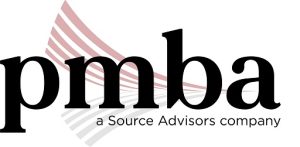 States continue to lose massive revenue streams with sales tax as one of the most profitable sources. While some states have adopted sales tax relief for small and medium-sized businesses (SMBs), most have provided very little support in this area. Instead, we have seen an increased number of state sales tax audits, particularly for SMBs. These audits likely correspond with states’ efforts to make up for lost revenue, triggering business owners to seek defensive strategies.
States continue to lose massive revenue streams with sales tax as one of the most profitable sources. While some states have adopted sales tax relief for small and medium-sized businesses (SMBs), most have provided very little support in this area. Instead, we have seen an increased number of state sales tax audits, particularly for SMBs. These audits likely correspond with states’ efforts to make up for lost revenue, triggering business owners to seek defensive strategies.
5 Reasons that SMBs are Vulnerable to a Sales Tax Audit
- Low hanging fruit. States might find it more cost-effective to pursue SMBs because the audit process is quicker than for a larger business.
- Lack of knowledge. States’ sales tax rules are ever-changing, and new clarifications are issued regularly. Keeping up with all the obligations is hard enough for larger companies, let alone SMBs with limited resources.
- No audit defense strategy in place. Sometimes an audit is unavoidable. Understanding what states look for during an audit can significantly reduce your liability. But without appropriate guidance from a sales tax specialist, it can be tricky to navigate.
- Use tax is often overlooked. Sales tax audits include looking at a company’s fixed asset purchases and expense activity. Some businesses may have their sales tax on track but don’t have an accrual process in place for use tax.
- “Good faith” measures are not taken into consideration. For various reasons, when tax laws are unknown or unclear, SMBs will make a best effort to comply. Unfortunately, state auditors are not amenable to this approach.
3 Sales Tax Tips for SMBs
- Determine sales tax nexus requirements by conducting a nexus study. States are frequently updating their rules or issuing new advisory opinions. So, even if a business has completed a nexus study in the past, it is important to review activity annually as exposure and requirements can change.
- Analyze company products and services to determine sales taxability.
- Consider a pre-emptive approach. A nexus study will indicate where potential exposure exists. Taxpayers that have not been registering or remitting sales tax in states where they are liable should investigate a Voluntary Disclosure Agreement (VDA) to reduce or eliminate possible penalties and interest due on uncollected or unremitted sales tax.
IMPORTANT NOTE: Since sales tax is a trustee tax, states will hold responsible corporate officers personally liable for the errors. Be careful not to rely on industry trends or what competitors are doing. Analyze your liability as soon as possible and establish a compliance plan.

